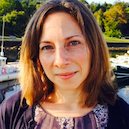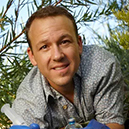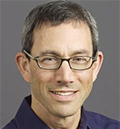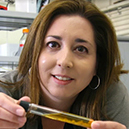This workshop will be held on Monday, March 20th, 2017, 8:30-12:30pm at the Marriott.
Agenda
| Time | Speaker | Title |
| 8:30-9:00 | Trent Northen | Overview of JGI metabolomics capabilities for JGI CSPs |
| 9:00-9:45 | Ben Bowen | Introduction to metabolomics data processing, standard output and effective data utilization |
| 9:45-10:15 | Trent Northen / Ben Bowen | Writing CSP proposals that include metabolomics; experimental design considerations specific for metabolomics |
| 10:15-10:30 | Break | |
| 10:30-11:00 | Speaker I: Michelle O’Malley (UCSB) | Fungal Secondary Metabolite Pathways |
| 11:00-11:30 | Speaker II: Kris Niyogi (Berkeley) | Algal Functional Genomics |
| 11:30-12:00 | Speaker III: Brian Hedlund (UNLV) | Functional Genomics of Chloroflexi |
| 12:00-12:30 | Speaker IV: Sheri Floge (OSU) | Impact of virus and phage predation on cyanobacterial metabolism |
| 12:30 | End | |

Trent Northen, Ph.D.
Host: Trent Northen, Ph.D.
- Staff Scientist, Berkeley Lab
- Director of Biotechnology, ENIGMA SFA Program
- Director of High-Throughput Biochemistry, Joint BioEnergy Institute
- Metabolomics Lead, Joint Genome Institute (JGI)
Dr. Trent Northen is Staff Scientist at Berkeley Lab where he is Director of Biotechnology for the ENIGMA SFA program, Director of High-throughput Biochemistry at the Joint BioEnergy Institute, and Metabolomics Group leader at the Joint Genome Institute. Previously, Dr. Northen was Interim Division Director of Environmental Genomics and Systems Biology at Lawrence Berkeley National Laboratory.
Dr. Northen joined Berkeley lab in 2008. He obtained his BS in Chemical Engineering at the University of California Santa Barbara in 1996. Dr. Northen was a NSF Integrative Graduate Education and Research Traineeship (IGERT) fellow at the Biodesign Institute (Arizona State University), where he received his PhD in Chemistry and Biochemistry in 2005 under Neal Woodbury and was a Post-Doctoral Fellow at the Scripps Research Institute under Gary Siuzdak between 2006-2008 in mass spectrometry and metabolomics. In 2010 he completed Berkeley Lab Leadership Development Program at the UC Berkeley Haas School of Business and is currently the Berkeley Lab representative on the Oppenheimer Energy Leadership Program.
He has received numerous awards including a 2016 Berkeley Lab Director Exceptional Achievement Award, a 2014 DOE Early Career Award, a 2013 R&D100 award, and a Presidential Award for Science and Engineering (PECASE) awarded by President Obama in 2009. His research has resulted in over 20 patent applications and over 80 publications including numerous papers in influential, peer-reviewed journals, such as Nature, Nature Communications, Nature Plant, Nature Biotechnology, PNAS, Energy and Environmental Sciences, etc. Dr. Northen currently serves on a number of committees, Scientific Advisory Boards, is co-leading the Microbes-2-Biomes Initiative, is Strategy Mentor for the Berkeley Lab Biosciences Environmental Strategy, and is Chair of the EGSB Staffing Committee.
Ben Bowen

Ben Bowen
- Research Scientist, Berkeley Lab
- Founder of OpenMSI and Metabolite Atlas
- Informatics Lead of Metabolomics Team, Joint Genome Institute (JGI)
Ben Bowen is leading the metabolomics data analysis needs of the JGI and applying emerging technologies to better understanding complex, dynamic metabolic networks in an environmental context. These metabolomics datasets generated are often large-scale both in terms of complexity and raw-size making them difficult to mine for biological insight. As lead of the OpenMSI and Metabolite Atlas, he aims to make the most high-performance, advanced data management, model building, analysis and visualization resources for mass spectrometry accessible to all scientists via the web.
Sheri Floge
- A. O. Beckman Postdoctoral Research Fellow
- Department of Microbiology
- The Ohio State University

Sheri Floge
Sheri A. Floge is a postdoctoral researcher in the Department of Microbiology at The Ohio State University. Dr. Floge is broadly interested in viral diversity in nature and how this relates to ecosystem function. To this end, as an Arnold O. Beckman Postdoctoral Fellow, her work has focused on developing techniques to explore predator-prey interactions at the microscale and quantify the resultant ecosystem-scale impacts on carbon and nutrient cycling in natural systems. Complementarily, she has been using transcriptomics and metabolomics to explore mechanisms underpinning interactions between marine cyanobacteria, viruses and single celled predators in laboratory experiments. With this combined field and lab approach, she hopes to better elucidate viral roles in natural ecosystems.
Brian P. Hedlund, Ph.D.

Brian Hedlund
- Professor School of Life Sciences
- University of Nevada Las Vegas
My research focuses on life in high temperature habitats, particularly terrestrial hot springs. The study of high-temperature ecosystems (>73°C) is a major research frontier because temperature alters the ecology of these systems in ways that are important but poorly understood and because some springs are hot spots for novel, uncultivated organisms, so-called biological dark matter.
Krishna K. Niyogi
- Principal Investigator
- University of California, Berkeley

Krishna K. Niyogi
Kris Niyogi is a Howard Hughes Medical Institute Investigator, a member of the National Academy of Sciences, and Fellow of the American Association for the Advancement of Science. He is also a professor in the Department of Plant and Microbial Biology at the University of California, Berkeley and a faculty scientist in the Physical Biosciences Division at Lawrence Berkeley National Laboratory. He has received numerous awards including from the Howard Hughes Medical Institute and the Gordon and Betty Moore Foundation, the Charles Albert Schull Award – American Society of Plant Biologists, the Melvin Calvin Award – International Society of Photosynthesis Research, a Presidential Early Career Award for Scientists and Engineers – USDA, and the Searle Scholar – Searle Scholars Program/The Chicago Community Trust.
Michelle A. O’Malley
- Assistant Professor
- Department of Chemical Engineering
- Center for Bioengineering
- University of California, Santa Barbara

Michelle A. O’Malley
Michelle A. O’Malley earned a B.S. in Chemical Engineering and Biomedical Engineering from Carnegie Mellon University in 2004. She holds a PhD in Chemical Engineering from the University of Delaware in 2009, where she worked with Prof. Anne Robinson to engineer overproduction of membrane proteins in yeast. O’Malley was a postdoctoral fellow in the Department of Biology at MIT, where she developed new strategies for cellulosic biofuel production. She joined the Chemical Engineering faculty at UC-Santa Barbara in 2012, where her research group engineers protein synthesis within anaerobes and consortia for sustainable chemical production, bioremediation, and natural product discovery. O’Malley was named one of the 35 Top Innovators Under 35 by MIT Technology Review in 2015, and is the recipient of the Presidential Early Career Award for Scientists and Engineers (PECASE), a DOE Early Career Award, an NSF CAREER award, an ACS PMSE Young Investigator Award, a Hellman Faculty Fellowship, a USDA-NIFA Postdoctoral Fellowship, a Whiting Foundation Fellowship, and the NASA-Harriett G. Jenkins Predoctoral fellowship.